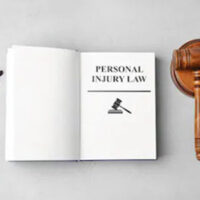How Do You Collect on a Georgia Personal Injury Judgment?

Winning a personal injury lawsuit is often just the first step in a lengthy process. A civil judgment is essentially just a piece of paper stating the defendant owes you money. It does not guarantee that the defendant will actually pay what they owe you, assuming they even have the assets to do so.
In many Georgia personal injury cases, such as claims arising from car accidents, the defendant’s insurance company will pay any judgment or settlement up to the limit of the policy. That is often insufficient, however, to fully satisfy many judgments, especially in cases where the victim’s injuries and other losses were substantial. In these situations, the victim may need to identify other assets owned by the defendant that may be available to pay the remainder of the judgment.
Going After a Defendant’s Assets
Anything a person owns that has cash value is an asset. When it comes to collecting a Georgia personal injury judgment, however, not all assets are created equal. Some assets are exempt from creditor claims under state law. Other assets may not be immediately available. And some assets may be hidden and require additional procedures to identify.
Two common methods for collecting on a personal injury judgment include filing a garnishment or recording a writ of fieri facias. A garnishment is basically a claim against money owned or owed to the defendant. For example, if the defendant has a checking account, you can file a financial institution garnishment to collect the money you are entitled to from that account.
A writ of fieri facias is a lien against real property. If the defendant owns real estate anywhere in Georgia, you can file the writ with the clerk of the country magistrate court. You typically need to wait at least 30 days after a civil judgment is issued to file such a writ. But once filed, the local sheriff can seize the property in question and sell it to pay off the judgment owed to you. (You can also file a writ of fieri facias with the Georgia Division of Motor Vehicles against a defendant’s car or another motor vehicle that they own.)
Bankruptcy and Creditor Exemptions
In response to a substantial personal injury judgment, some defendants will file for federal bankruptcy protection. Even without taking this step, Georgia law exempts certain debtor assets from creditor claims. An exempt asset is one that you cannot touch even if you have a valid Georgia personal injury civil judgment.
Some of the common Georgia creditor exemptions include the equity in the defendant’s primary residence–up to $21,500 for a single person or $43,000 for a married couple; up to $5,000 in equity in a motor vehicle; and any federally protected retirement accounts in the defendant’s name. A defendant’s wages are also exempt up to a certain legal threshold.
Another thing to note is that if a defendant files for bankruptcy, the court will impose an automatic stay on any pending state collection proceedings. This means you are barred from taking any further collection action until the bankruptcy court says otherwise. And many personal injury judgments can be outright discharged in a Chapter 7 bankruptcy proceeding, which means the defendant is no longer obligated to pay you anything once their bankruptcy case is completed. (This does not apply, however, to personal injury judgments arising from drunk driving or intentional acts.)
Contact Hawkins Spizman Trial Lawyers Today
If you have been seriously injured in an accident and need legal advice regarding your right to compensation, it is best to speak with a qualified Atlanta personal injury lawyer as soon as possible. Contact Hawkins Spizman Trial Lawyers today to schedule a free consultation. We serve clients throughout Georgia including Atlanta, Dunwoody, Alpharetta, Cobb County, Fulton County, Gwinnett County, Johns Creek and Sandy Springs.
